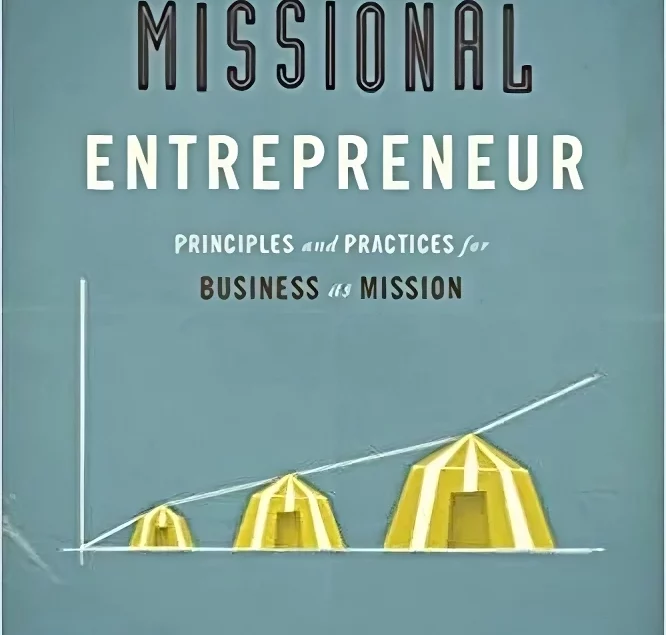The Missional Entrepreneur
The Missional Entrepreneur: Principles and Practices for Business as Mission
An M3 Weekly Book Review
If you or someone you know is looking for an introduction to the concept of Missional Enterprise, a great book to consider is The Missional Entrepreneur. Written by Mark Russell, a seminary graduate with experience in the research and practice of business as mission (BAM), the book provides a helpful introduction to the scriptural, historical, and practical issues affecting missional enterprise.
The book is divided into five sections. The first section (“Fundamentals”) provides an abbreviated theology of business. Russell starts by placing business in context with all of creation, fallen from God’s original good design, and in need of redemption. He introduces what he calls the “BAM Sweet Spot of Synergy”: business efforts that address all of the various aspects of brokenness in the world (Spiritual, Social, Economic, and Environmental). In this section, he also distinguishes business as mission from other ways that business and mission might co-exist.
The second section addresses the life of Paul. Here, Russell points out the many indications in the scriptural account that Paul’s work was not merely a means to support himself when money was tight, but also a context for ministry and a key part of the model he provided in his discipling of others.
In the third section, Russell gives a history of business as mission throughout church history. He addresses and evaluates various motives for business as mission and provides the helpful caveat that BAM is not for everyone – many callings are best served by the traditional overseas missions model. In this section, he also makes an extended contrast between two different perspectives a person engaged in BAM might assume. Russell labels these two divergent perspectives “blessers” and “converters.” These terms are generalizations – both groups sought conversions to Christ and to be a blessing – but they are used to contrast the more open, adaptive, partnering approach of the “blessers” and the less open, more independent approach of the “converters.” Ironically, Russell’s research found that those in the “blessers” category reported significantly more evangelism and conversion in their ministry.
Section Four is called “Best Practices” and has high-level but helpful guidance for starting and growing a missional business (“Think Big, Start Small, Scale Smartly”), and for establishing a clear vision and mission for the enterprise. Finally, Section Five (“Special Topics”), in our opinion, would have been better left out of the book or provided as appendices.
In all, while we may not agree with every aspect of Russell’s description of missional enterprise provided in this book, we highly recommend it as a great introduction and explanation of key concepts and issues. As with most resources, we believe that The Missional Entrepreneur is best studied with a small group or a mentor.
Verse(s) of the Week
2 Corinthians 3:4-5: Such confidence we have through Christ toward God. Not that we are adequate in ourselves to consider anything as coming from ourselves, but our adequacy is from God. (NASB)
Let’s meditate this week on the freeing reality that any confidence or adequacy we have comes to us from God through Christ.
